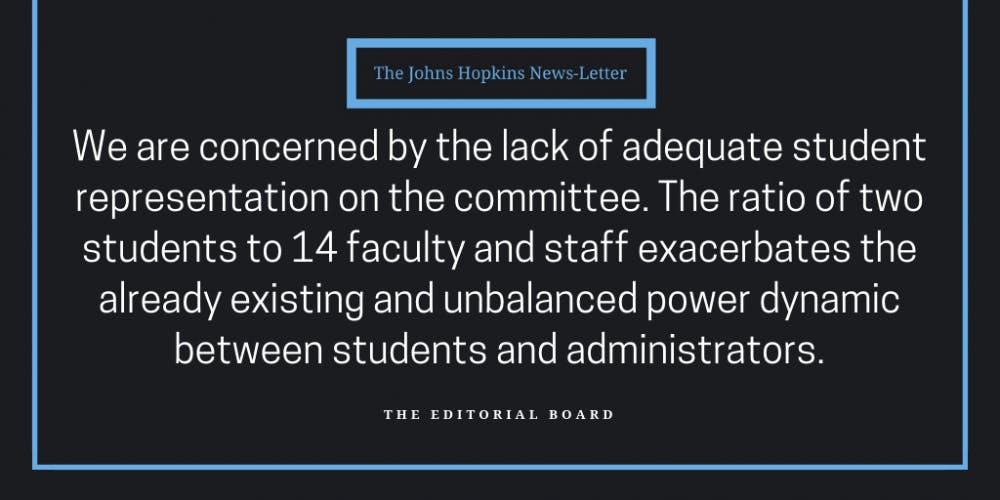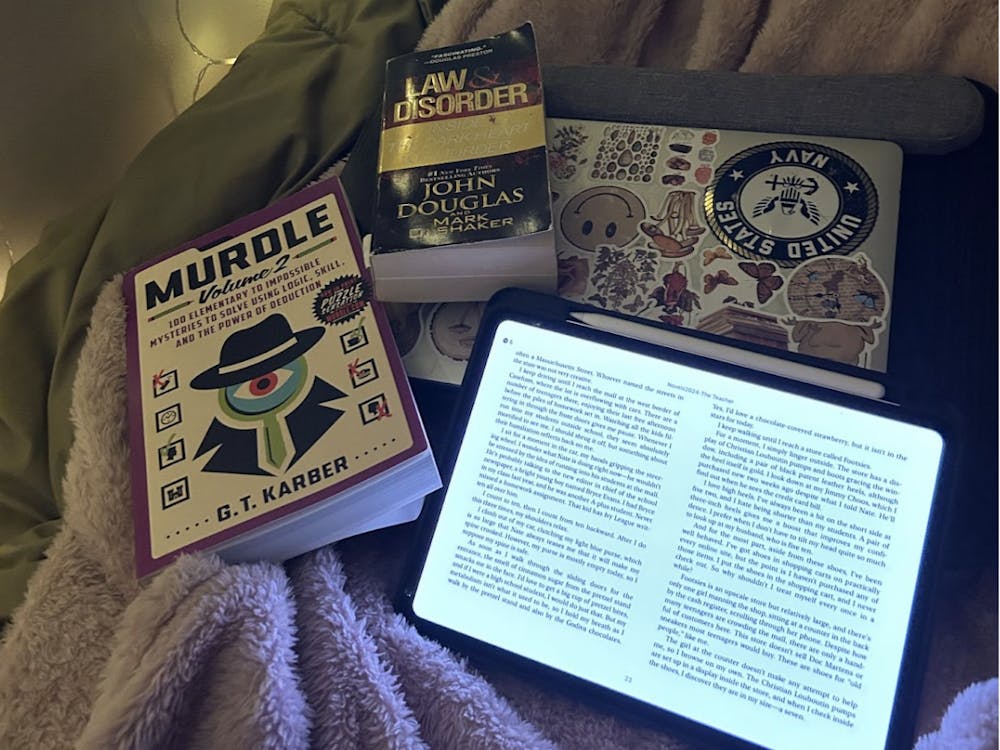When the University announced its intention to create a private police force in March 2018, it failed to consult Hopkins affiliates and community members. After the announcement met with widespread backlash and Maryland legislators postponed voting on the bill, administrators promised to do a better job of consulting students and Baltimore residents.
After months of protests against the private police force bill — which culminated in a month-long sit-in and the arrest of four students and three community members — the bill passed in the Maryland General Assembly this past spring.
As we’ve been grappling with the reality of a private police force, we’ve hoped that the University would do a better job of taking the concerns of students and community members into account. So far, it’s not off to a promising start.
Since May, the University has been searching for a replacement for Melissa Hyatt, who became vice president (VP) for security in April 2018 and left to become police chief of Baltimore County. As VP for security, she was tasked with leading and developing the future private police force. Administrators formed a search committee and published a list of its members on July 26. There have been no updates since then.
Upon hearing about the search committee, we hoped that it would include a variety of students and community members. We hoped that they would influence the trajectory of the police force. After taking a close look at the members of the search committee, we have serious doubts.
As of July 26, the search committee has a total of 19 members. Out of these 19 members, there is one undergraduate student, one graduate student and three community members.
We have two main concerns regarding this committee. First, we identified pre-existing relationships between the University and all three of the community members. In an interview with The News-Letter, Executive Director for Talent Acquisition Ian Matthew-Clayton claimed that the chosen community members were independent from the University. “We have three community members who don’t have an affiliation with Hopkins,” he said.
We found this statement to be misleading. One of the community members, Samuel T. Redd, is the executive director of Operation P.U.L.S.E.. It facilitated the Ambassadors Program in partnership with the Johns Hopkins Medical Institutions Corporate Security, which hires individuals who have completed the program. In addition to this affiliation, Operation P.U.L.S.E. has been the recipient of the HotSpots grant, which the state funds through the Baltimore City Police Department.
Another community member, Regina Hammond, is the president of ReBUILD Johnston Square, a neighborhood organization in East Baltimore. On Monday, University President Ronald J. Daniels announced the expansion of the University’s Live Near Your Work program, which provides grants to employees for purchasing homes in select neighborhoods. One of the new neighborhoods included in the program is Johnston Square. Daniels and Hammond spoke together at a Live Near Your Work event in Johnston Square to announce the expansion.
The third community member, Dana Moore, is the former president of the Charles Village Civic Association, which claims to have formed constructive partnerships with the University. She is also Baltimore’s deputy city solicitor. We are confused as to why the University chose to simply refer to her as a “Charles Village resident and community leader” when it is clear that she holds a prominent position in the city.
Each of these three community members has a relationship with the University which began before their involvement in this committee. We cannot claim to know what their views are on the private police force or any other public safety operations. But we doubt that this committee can be truly representative of the Baltimore community when all three of these members have an affiliation with Hopkins.
Second, we are concerned by the lack of adequate student representation on the committee. The ratio of two students to 14 faculty and staff exacerbates the already existing and unbalanced power dynamic between students and administrators. There is power in numbers, and we fear this may inhibit students' ability or willingness to speak against the University, or even to just speak up.
Moreover, it is not acceptable to have only one undergraduate and one graduate student speak for all Hopkins students. We support the University’s decision to include Kendall Free, president of the Black Student Union (BSU), as the undergraduate representative. However, we question their decision to ask her directly, rather than having open applications to be on the committee, or even asking the BSU to elect their own representative. Regardless, the sheer fact that the committee only has two student voices means that the University is leaving out a wide range of perspectives.
In the coming months, the University needs to do a better job of being accountable to the community it claims to protect. How the University chooses the new VP for security is of the utmost importance, as they will play a vital role in the development of the private police force and the safety of Hopkins. We as a student body deserve to be a greater part of that process.





